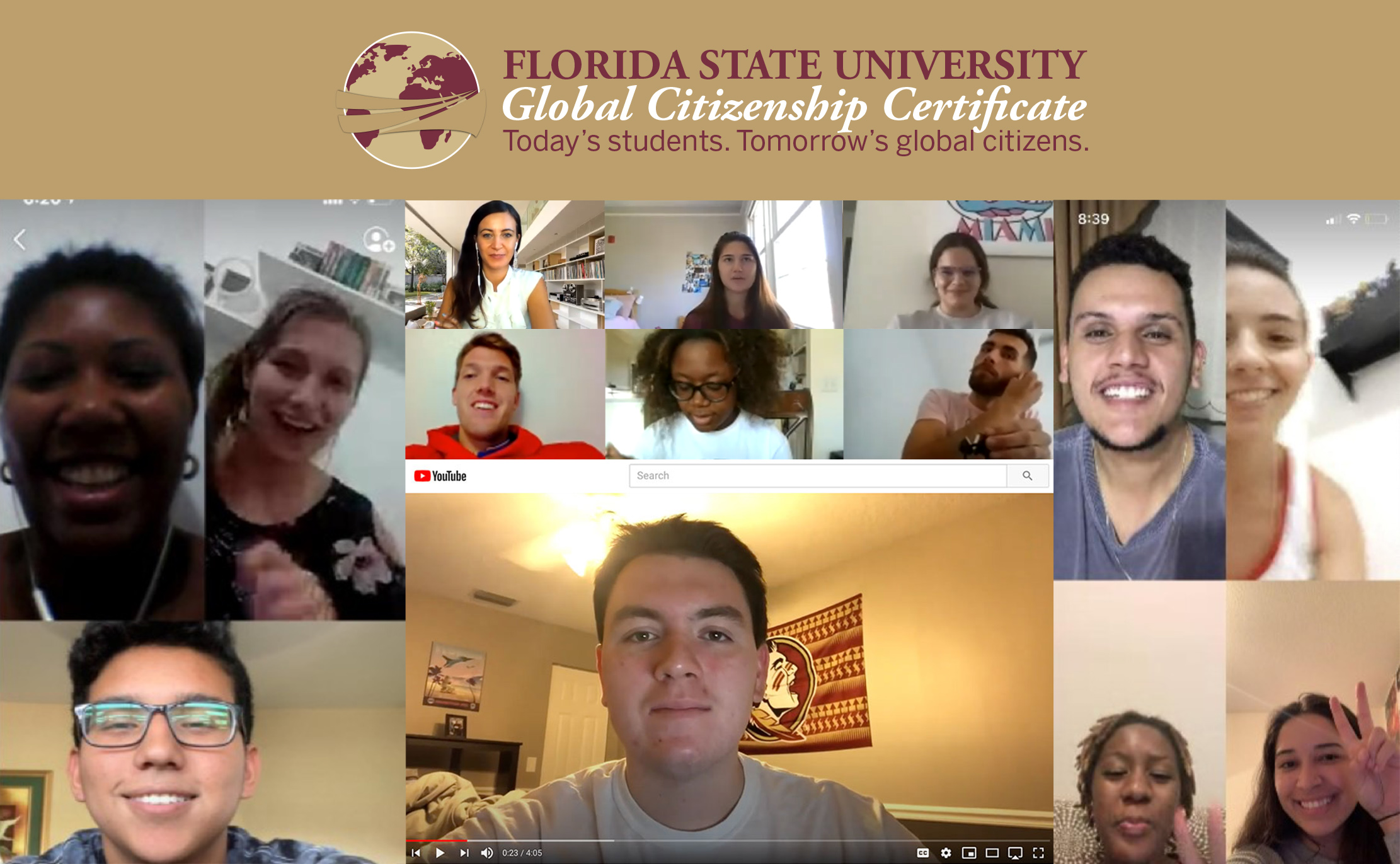FSU’s Global Citizenship Certificate Strengthens Collaborative Online International Learning (COIL) Partnerships
This fall the Global Citizenship Certificate (GCC) doubled the number of Florida State University students engaged in enhanced global learning by expanding its Collaborative Online International Learning (COIL) partnership from the initial partnership with The Technology College of Americana (FATEC) in Brazil to include three different campuses at FATEC: FATEC Americana, FATEC São Caetano and FATEC Praia Grande.
These expanded partnerships allow for 80 FSU undergraduate students enrolled in three sections of the Global Perspectives course to benefit from active intercultural engagement and learning with the students they are paired with from Brazil for fall versus 40 students for spring 2020. The initial spring 2020 pilot COIL project was implemented by Elçin Haskollar, Ph.D., GCC Program Director and Teaching Faculty.
Through a combination of intercultural contacts and active reflection, the COIL initiative helps Global Perspectives students gain essential cross-cultural skills and global competencies while meeting several of FSU’s liberal studies requirements.
"The course allows students to participate in a cross-cultural partnership with other college students in a different country,” Dr, Haskollar said. "Students get to learn about a variety of global issues like race relations across borders, poverty, LGBTQ+ issues through hands-on research and active learning."
Former students say that COIL was integral to gaining firsthand knowledge and understanding of another culture.
“The Collaborative Online International Experience was greatly beneficial. This experience allowed for me to gain valuable insights into another culture,” said Augustin Smith, a junior studying real estate. “I now feel more educated about culture and am more capable of handling cross–cultural conflict.”
Additionally, Dr. Haskollar and GCC Teaching Faculty Tanu Kohli Bagwe, Ph.D., are conducting mixed methods research to examine changes in students’ intercultural skills as a result of participating in a COIL project with students from a different country. The results of the study will help measure the effectiveness of COIL partnerships and inform researchers about how undergraduate students are acquiring intercultural skills and to what extent individual student characteristics impact their development of such skills.
FSU teaching faculty expect to continue COIL collaborations in Global Perspectives courses this spring. Students interested in taking this course should email globalcitizen@fsu.edu indicating their interest to receive information about enrolling in the course when it is available.
Students who take Global Perspectives are also encouraged to enroll in the Global Citizenship Certificate, a program designed to foster global-readiness and increase critical skills needed to succeed in today's increasingly globalized workforce. Students earn a transcript notation and participation counts toward one engagement area for FSU’s prestigious Garnet and Gold Scholar Society.
In addition to taking Global Perspectives, enrolled students choose three elective courses from a list of 500+ approved liberal studies courses with a cross-cultural or global theme (one of which can be a language course), attend eight intercultural events, and complete one sustained intercultural experience domestically or abroad.
The Global Citizenship Certificate is a collaborative program between the Center for Global Engagement and the College of Social Sciences and Public Policy and helps students learn about different perspectives and develop an intercultural mindset.
FSU students interested in enrolling in the Global Citizenship Certificate may learn more by visiting cge.fsu.edu/globalcitizen and can schedule a personal info session by emailing globalcitizen@fsu.edu.
If you want to know more about the details of this COIL project, view this virtual panel with Elçin Haskollar, Ph.D, and Tanu Kohli Bagwe, Ph.D., moderated by the U.S. Embassy in Santo Domingo, Dominican Republic.


